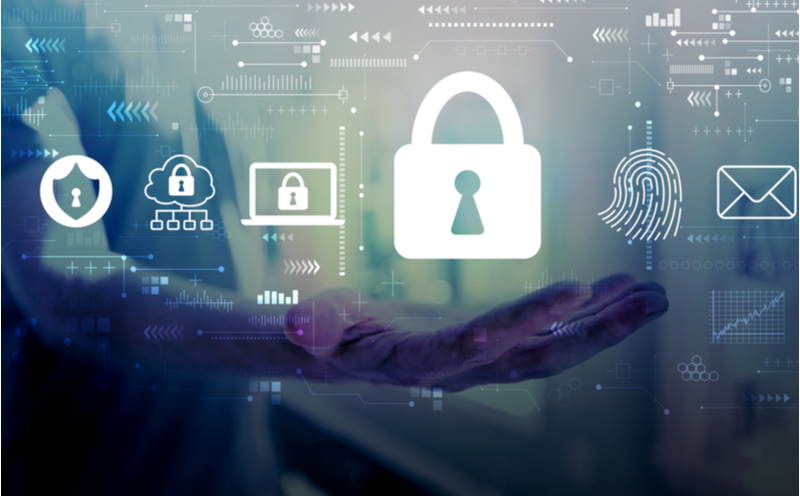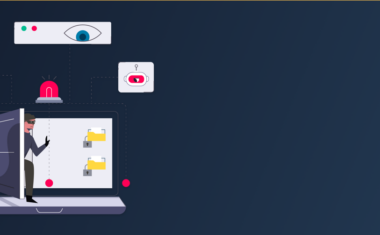What Does a Cybersecurity Analyst Do? [2023 Career Guide]
![What Does a Cybersecurity Analyst Do [2022 Career Guide]](png/what-does-a-cybersecurity-analyst-do-2022-career-guide.png)
In this article
Cybersecurity analysts are the security guards of computer information systems. They plan and implement security controls that protect companies and organizations from ever-increasing cyber threats. Cybersecurity analysts enjoy high job satisfaction and above-average advancement opportunities. This article will describe what cybersecurity analysts are, what they do, and how to become one. Read on if you’d like to learn more about this rewarding career.
What Is a Cybersecurity Analyst?
A cybersecurity analyst protects networks and computer systems from cyberattacks and unauthorized access. They prevent attacks before they happen and respond to them when they do. Cybersecurity analysts identify and remediate vulnerabilities by performing diagnostic tests and monitoring traffic.
A cybersecurity analyst’s job also set protocols for good digital hygiene. By training employees in cybersecurity best practices, cybersecurity analysts can also prevent unauthorized access from inside an organization.
What Does a Cybersecurity Analyst Do?
Depending on where they work and their role, cybersecurity analysts may perform various security-related tasks. Some cybersecurity analysts oversee all aspects of a company’s network and computer security, while others work in more specialized roles. Some responsibilities of cybersecurity analysts include:
Investigate Security Alerts and Security Breaches

As part of a robust cybersecurity plan, businesses use software programs to identify potential security issues and breaches. Cybersecurity analysts investigate these alerts to determine the level of risk and how to mitigate it. A cybersecurity analyst will investigate the cause, contain the damage, and notify the appropriate parties if a security breach occurs.
Discover Vulnerabilities
It’s best to find a vulnerability in your security system before a hacker does, so cybersecurity analysts spend a lot of time searching for weak spots before they can be exploited. They establish procedures to update software and regularly test it to validate security.
Conduct Ethical Hacking
Ethical hackers try to break into networks to expose security risks. This is done with the approval of the company or organization. Ethical hackers use the same tools and techniques bad actors use, but their goal is to find and fix weak spots before actual hackers find them.
Install and Operate Security Software

Cybersecurity analysts are responsible for installing, updating, and maintaining their company’s security software.
Technology Research
Cybersecurity analysts have to stay updated on the types of threats they’re likely to face. They also have to be aware of any risks of vulnerabilities in the proprietary or open-source code they’re using.
Develop and Implement Security Protocols
Security protocols are the procedures that keep an organization safe from cyber threats. Cybersecurity analysts develop and implement these protocols, often following industry standard frameworks.
Monitor Networks
Monitoring network traffic allows a cybersecurity analyst to stay on top of threats and protect against unauthorized data access. It also provides an audit trail so organizations can document who has accessed or made changes to a database. This is a legal requirement for some companies and best practice for others.
Cyber Security Analyst Job Description

The precise job description for a cybersecurity analyst can vary, but will often include duties such as:
- Identify and resolve security threats to safeguard information systems
- Define access privileges to protect systems
- Implement and maintain security controls
- Perform penetration tests
- Identify security breaches and follow response protocols
- Assess current security risks and implement improvements
- Conduct periodic audits to detect security violations and inefficiencies
- Prepare performance reports and communicate results to stakeholders
Cybersecurity Analyst Qualifications
Cybersecurity analysts have to protect information systems from internal and external threats. While most cybersecurity analyst positions require a bachelor’s degree, it doesn’t necessarily need to be in cybersecurity. The field of cybersecurity relies heavily on certifications to verify one’s qualifications. If you obtain the appropriate certification for the job you’re seeking, you’ll have an advantage over the competition.
Education
You can learn cybersecurity analyst skills through a traditional bachelor’s degree or by attending a bootcamp. Bootcamps can be completed in much less time than a college degree, and they focus exclusively on the skills you’ll need to pass your certification and be career-ready. A comprehensive bootcamp program will give you the opportunity to demonstrate that you have the practical, hands-on knowledge to get the job done.
Work Experience
If you don’t have any prior work experience, you’ll need to start as a junior-level cybersecurity analyst. As you gain experience, you can work as a mid-level or senior analyst, or make a lateral move to other areas of cybersecurity, such as security architecture or cybersecurity management.
Get To Know Other Cybersecurity Students
Ed Burke
Cyber Security Career Track Student at Springboard
Vianey Luna
IT Security Specialist at Cooper Machinery Services
Rafael Ayala
Mergers And Acquisitions at Autodesk
Cybersecurity Analyst Skills
Programming
Not all cybersecurity analyst roles require programming, especially at the junior level. However, understanding basic programming languages such as Python, JavaScript, and SQL can help advance your career. Part of identifying threats involves understanding them, so knowing how hackers attack code is a valuable skill.
Monitor Attacks and Intrusion Detection
While most of your work will focus on preventing attacks, you have to know how to detect them and respond if they do occur. Part of your job will be to monitor network traffic, analyze event logs, and implement security information and event management (SIEM) solutions.
Data Security
In today’s digital-first environment, data is a significant part of the valuation of businesses, so data security is a high priority. Cybersecurity analysts protect data from unauthorized access and corruption by using tools such as data encryption, hashing, key management, and tokenization.
Endpoint Management
An endpoint is any device connected to a network. Cybersecurity analysts must evaluate, assign, and manage access rights at every endpoint. Effective endpoint management ensures that only approved and authenticated devices connect to the network, and that users follow established security protocols.
Network Security
Network security encompasses all of the policies and procedures used to prevent and detect unauthorized access, misuse, or modification of an organization’s information system.
Cybersecurity Analyst Salary

The average annual salary for a cybersecurity analyst is $77,144. You’ll earn less when you first enter the field and more as your career progresses. Here are the average salaries, based on experience:
- Entry-Level Cybersecurity Analyst: $64,732
- Mid-Level Cybersecurity Analyst: $89,441
- Senior-Level Cybersecurity Analyst: $101,901
Your salary will also vary depending on where you live. Some of the highest paying cities for cybersecurity analysts are:
- Colorado Springs, CO: $88,184
- Washington, D.C.: $86,035
- San Diego, CA: $82,783
- New York, NY: $87,994
- Arlington, VA: $90,034
Related: Cyber Security Analyst Salary Guide: Who Makes What?
Cybersecurity Tools To Be Familiar With
As a cybersecurity professional, you’ll need to use industry-standard tools. Some of the most common include:
Firewalls
A firewall is a network security tool that filters traffic entering or leaving your network. You can configure a firewall to provide more or less protection based on your set rules.
Antivirus Software

Antivirus software detects viruses, ransomware, worms, adware, spyware, and Trojan horses. This is a basic security measure that’s usually installed on all endpoints.
Encryption Tools
Cybersecurity analysts protect data by encrypting it. Encryption tools scramble the data before it’s transmitted, and tools on the other end unscramble it for authorized users.
Web Vulnerability Testing Tools
A web vulnerability scanner is an automated tool that cybersecurity analysts use to check for vulnerabilities in web applications. They test for common security issues such as:
- Cross-site scripting (XSS)
- SQL injection
- Cross-site request forgery (CSRF)
Managed Detection and Response Service

A Managed Detection and Response Service (MDR) is a platform for outsourcing cybersecurity services. MDR providers offer cloud-managed security via tools like:
- Advanced analytics
- Threat detection
- Human expertise
Penetration Testing
Penetration tests are designed to simulate actual cyberattacks. These tests can be manual or automatic, and are used to expose any exploitable information system component, including:
- Servers
- Endpoints
- Web applications
- Wireless networks
- Network devices
- Mobile devices
If the tester can access the system, they will try to move further into the system, laterally and higher up, to achieve deeper access. A full report of all exposed vulnerabilities will be prepared so the organization can fix them.
How To Become a Cybersecurity Analyst
There are several ways that you can become a cybersecurity analyst. The traditional path is a bachelor’s degree in cybersecurity or a related field. However, many bootcamps can train you to become an entry-level cybersecurity analyst in less time, and with significant cost savings. Regardless of the path you take, you’ll need to complete several steps to gain the requisite skills and knowledge.
Build Your Foundation
Cybersecurity analysts have to understand how network and computer systems work, how they can be compromised, and the best way to protect them. The fundamentals of cybersecurity involve three concepts known as the CIA triad, which stands for:
Confidentiality
Data should only be available to authorized users. Encryption is one tool used to ensure data confidentiality. Cybersecurity analysts have to consider who needs access to the data and how sensitive it is, then design procedures to provide the highest level of confidentiality for the most sensitive data.
Integrity
Protecting data integrity means ensuring it’s not compromised, either intentionally or unintentionally. Data can be compromised during transmission or storage, so cybersecurity analysts must protect it at all stages.
Availability
For data to be useful, it must be available when needed by authorized users. Making data available when necessary but protecting its integrity and confidentiality is at the heart of a cybersecurity analyst’s job.
Grow Your Skills

After you learn the fundamentals of cybersecurity, continue to grow your skills by learning more about:
Networking and System Administration
Learning the nuances of networking will give you an understanding of the technical aspects of data transmission so that you’ll know how to secure data. Learning system administration will provide you with the knowledge to configure and maintain computers.
Operating Systems and Virtual Machines
Different devices use different operating systems (OS), and you’ll need to be comfortable with them. Virtual machines are computer files that simulate an actual computer so you can test programs and deploy apps without exposing your data.
Security Controls
Security controls are how cybersecurity analysts protect their organizations. The CIS 20 is a list of controls designed to maximize security. The top five are the most important and help protect against 85% of security threats. They include:
- Inventory of authorized and unauthorized devices
- Inventory of authorized and unauthorized software
- Secure configurations for hardware and software on all devices and servers
- Continuous vulnerability testing and remediation
- Restricted use of administrative privileges
Get Certified

The cybersecurity field offers many industry-standard certifications that are highly valued. Obtaining certifications is a great way to prove your skills and knowledge. Some of the most popular cybersecurity certifications include:
CompTIA Security+
This entry-level certification validates the baseline skills necessary to perform core security functions. CompTIA Security+ is an excellent certification when starting your career. It provides hands-on skills aligned with the latest trends and techniques and covers:
- Attacks, threats, and vulnerabilities
- Architecture and design
- Operations and incident response
- Governance, risk, and compliance
- Implementation
Certified Information Systems Auditor (CISA)
CISA certification is for entry-level and mid-level professionals. It validates your ability to apply a risk-based approach to planning, implementing, and reporting on audit engagements.
Certified Ethical Hacker (CEH)
The CEH certification shows that you know how to use the latest tools and techniques used by bad actors. You’ll be qualified to use these techniques to assess the weaknesses and vulnerabilities of security systems. You’ll be capable of working as a penetration tester with this entry-level certification.
Certified Information Systems Security Professional (CISSP)
The CISSP certification is only available to cybersecurity professionals with at least five years of experience. This advanced certification proves that you can effectively design, implement and manage an effective cybersecurity program. CISSP certification is used in the following roles:
- Chief information security officer
- Security systems administrator
- Information assurance analyst
- IT security engineer
- Principal cybersecurity manager
Apply for Entry-Level or Complementary Jobs

Once you’ve learned the fundamentals, expanded your skills, and passed the relevant certifications, you can start applying for entry-level jobs. If you have significant qualifications in another industry, you may be able to apply for a complimentary job and make a lateral move into a cybersecurity analyst role. Some entry-level cybersecurity roles include:
- Security analyst
- Security specialist
- Incident responder
- Security auditor
- Forensic expert
- Source code auditor
- Penetration tester
FAQs About Cybersecurity Analysts
Can a College Freshman Become a Cybersecurity Analyst?
Most cybersecurity analyst jobs require a bachelor’s degree or equivalent experience, so it would be hard for a college freshman to obtain the necessary qualifications. If you’re in college and interested in becoming a cybersecurity analyst, consider majoring in cybersecurity or a related field.
Do You Need a Degree To Become a Cybersecurity Analyst?
You don’t need a degree to become a cybersecurity analyst, but it does make it easier. However, you can also learn the fundamentals of cybersecurity through an online course or bootcamp.
Do Cybersecurity Analysts Code?
Most entry-level cybersecurity analysts don’t need to know how to code. As you obtain more senior-level positions, you may need to learn. No matter where you are in your career as a cybersecurity analyst, knowing how to code will help you understand how hackers exploit vulnerabilities.
Are Certifications Required To Become a Cybersecurity Analyst?
Certifications aren’t required to become a cybersecurity analyst. However, most jobs want a certification, degree, or significant experience. Certification is the best way to prove you have the knowledge and skills to work as a cybersecurity analyst.
Since you’re here…
Breaking into cybersecurity doesn’t take a Trojan Horse. Our Cybersecurity Bootcamp lasts just six months, and we’re the only program promising a job after graduation. Since there’s an urgent need in this field, we’re beaming out tons of freebies to entice you. Try our free cybersecurity learning path and this free course on cybersecurity certifications. Join in—there are plenty of jobs to go around!





